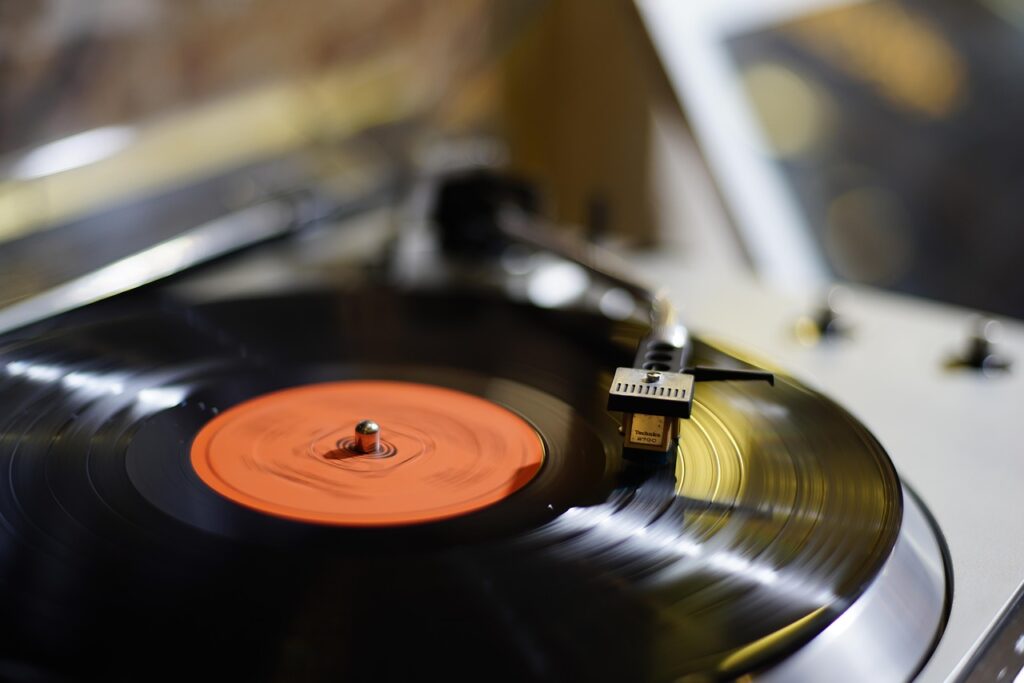
Why Film Scores Matter in Storytelling
A film’s soundtrack is more than just background music—it’s a powerful storytelling tool that shapes emotions, builds tension, and enhances cinematic moments. The right music can turn an ordinary scene into an unforgettable one, guiding audiences through the film’s emotional highs and lows. From Jaws’ haunting notes to The Lion King’s uplifting orchestration, film scores leave a lasting impact on our cinematic experience.
The Emotional Power of Music in Film
One of the most significant ways soundtracks elevate storytelling is by amplifying emotion. A well-crafted score can evoke fear, joy, sorrow, or nostalgia—sometimes without a single word spoken.
Take Schindler’s List (1993), for example. John Williams’ poignant violin theme, performed by Itzhak Perlman, encapsulates the film’s sorrow and gravity. The music doesn’t just accompany the visuals; it becomes the emotion of the film, reinforcing the heartbreak of the Holocaust story.
Another powerful example is Interstellar (2014), where Hans Zimmer’s organ-heavy score creates a sense of vastness and urgency, mirroring the film’s themes of time, loss, and human connection. The soundtrack alone conveys the weight of the story’s stakes, enhancing the audience’s emotional engagement.
Character Development Through Music
A great soundtrack can also provide insight into a character’s journey, often acting as an extension of their personality or struggles.
In The Dark Knight (2008), Hans Zimmer and James Newton Howard crafted a chilling, distorted theme for The Joker—a high-pitched, chaotic sound that grows more intense as his madness unfolds. The unpredictability of the music reflects the Joker’s anarchic nature, making him even more unsettling.
Similarly, Up (2009) tells Carl and Ellie’s love story in just a few minutes using Michael Giacchino’s iconic piece, Married Life. The lighthearted yet bittersweet melody carries audiences through their journey, making the loss that follows even more devastating. Without a single spoken word, the music alone tells a deeply moving story.
Building Suspense and Pacing with Music
Music also plays a crucial role in shaping a film’s pacing, intensifying suspense, and dictating the rhythm of key moments.
Take Jaws (1975), for instance. John Williams’ two-note motif is a masterclass in tension-building. As the tempo increases, so does the audience’s anxiety—long before the shark even appears on screen. This minimalistic yet effective score proves that sometimes, less is more when it comes to musical storytelling.
Another example is Mad Max: Fury Road (2015), where Junkie XL’s adrenaline-pumping score perfectly complements the film’s relentless action sequences. The pounding drums and heavy guitar riffs sync with the film’s high-speed chases, creating an almost hypnotic effect that keeps viewers on edge.
The Role of Soundtracks in World-Building
Beyond emotions and pacing, soundtracks help establish the atmosphere and setting of a film. Whether it’s a fantasy realm, a dystopian future, or a historical epic, music immerses the audience in the film’s world.
In The Lord of the Rings trilogy, Howard Shore’s sweeping orchestral score defines the epic scale of Middle-earth. The distinct themes for the Shire, Mordor, and Rohan create a musical map of the world, reinforcing the film’s sense of place and adventure.
Similarly, Blade Runner (1982) uses Vangelis’ futuristic synth score to establish its cyberpunk aesthetic. The eerie, dreamlike music blurs the line between reality and artificial intelligence, enhancing the film’s themes of identity and existence.
Why Soundtracks Are Essential to Filmmaking
A great film soundtrack does more than accompany a movie—it elevates it. Music has the power to shape emotions, define characters, build suspense, and immerse audiences in the story’s world. From John Williams to Hans Zimmer, the best composers understand that film scores are just as vital to storytelling as dialogue and cinematography.
As a lifelong film enthusiast, I’ve often found myself revisiting movie soundtracks long after the credits roll. For me, a film’s music can transport me back to its most gripping scenes, reigniting the same emotions I felt in the theater. It’s why hearing the opening notes of Jurassic Park still fills me with a childlike awe, or why the haunting theme from The Godfather instantly conjures its world of loyalty and betrayal.
Next time you watch a film, pay close attention to the soundtrack. Notice how it influences your emotions, enhances key moments, and deepens your connection to the characters. Because sometimes, the most powerful storytelling doesn’t come from words—it comes from music.
